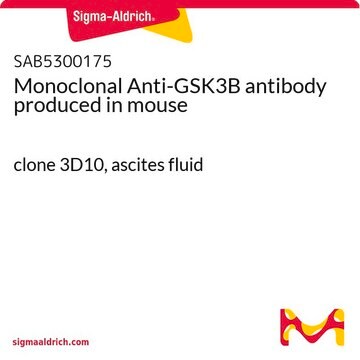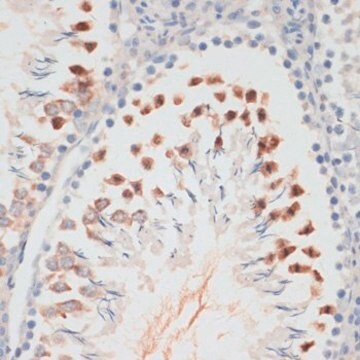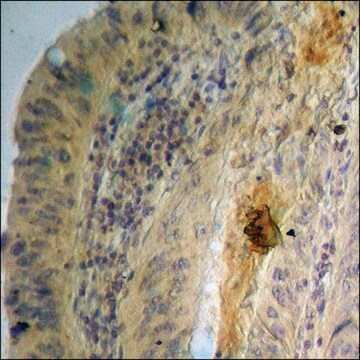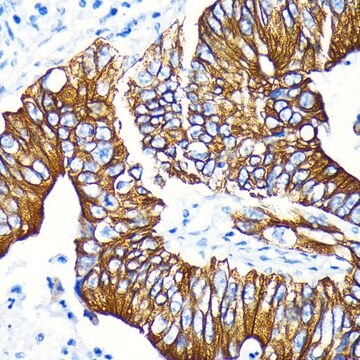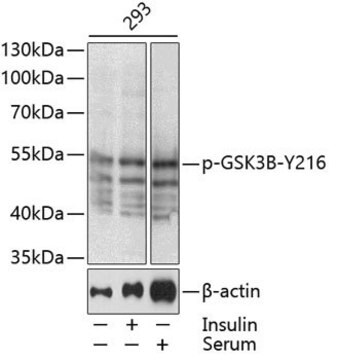05-643
Anti-phospho-GSK3β (Ser9) Antibody, clone 2D3
clone 2D3, Upstate®, from mouse
Synonym(s):
Anti-7330414F15Rik, Anti-8430431H08Rik, Anti-C86142, Anti-GSK-3, Anti-GSK-3beta, Anti-GSK3
About This Item
Recommended Products
biological source
mouse
Quality Level
antibody form
purified immunoglobulin
antibody product type
primary antibodies
clone
2D3, monoclonal
species reactivity
human, mouse, rat
manufacturer/tradename
Upstate®
technique(s)
electrophoretic mobility shift assay: suitable
western blot: suitable
isotype
IgG1κ
NCBI accession no.
UniProt accession no.
shipped in
wet ice
target post-translational modification
phosphorylation (pSer9)
Gene Information
human ... GSK3B(2932)
Specificity
Immunogen
Application
Signaling
PI3K, Akt, & mTOR Signaling
Quality
Target description
Linkage
Physical form
Storage and Stability
Legal Information
Disclaimer
Not finding the right product?
Try our Product Selector Tool.
recommended
Storage Class
10 - Combustible liquids
Certificates of Analysis (COA)
Search for Certificates of Analysis (COA) by entering the products Lot/Batch Number. Lot and Batch Numbers can be found on a product’s label following the words ‘Lot’ or ‘Batch’.
Already Own This Product?
Find documentation for the products that you have recently purchased in the Document Library.
Our team of scientists has experience in all areas of research including Life Science, Material Science, Chemical Synthesis, Chromatography, Analytical and many others.
Contact Technical Service
